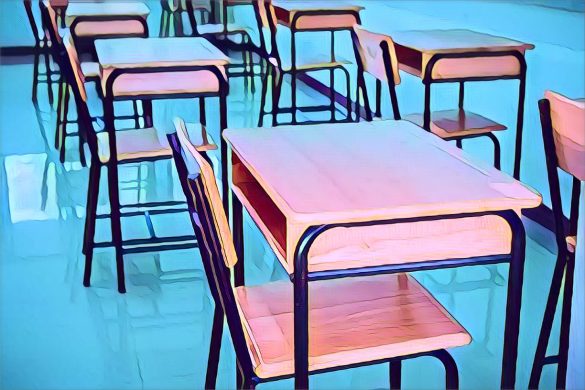Zimbabwe is facing a severe education crisis, as thousands of students in rural and urban areas are forced to learn under trees, in open spaces, or barns due to a lack of classrooms and infrastructure.
According to official statistics, the country needs about 2,800 new schools to reduce overcrowding and improve the quality of learning for its 4.5 million primary and secondary school students.
However, the government has failed to meet its target to build more schools, despite promising to do so during election campaigns and announcing plans to construct 3,000 schools by 2025.
The Government’s Excuse? A Shortage of Land
Moses Mhike, the permanent secretary for Primary and Secondary Education, told Newsday Zimbabwe that the government was struggling to find enough land to build schools, especially in urban areas.
“Basically you need 3,5 hectares to have a primary school and you need 7 hectares to be able to have a secondary school,” Mhike said.
“You need approximately 30 hectares to build a boarding school but we are saying that land is not going to expand in Zimbabwe.”
Mhike suggested that the government should consider building upwards, rather than horizontally, to accommodate more students in smaller spaces.
But teachers’ unions and education activists have dismissed the government’s claim of land shortage as a lame excuse, pointing out that the government has been acquiring land since 2000 when it launched a controversial land reform program that seized white-owned farms and redistributed them to black Zimbabweans.
A Matter of Will and Vision
Obert Masaraure, the leader of the Amalgamated Rural Teachers Union of Zimbabwe, said the education sector was suffering from a lack of planning and vision by the government and local authorities.
“On one hand the government failed to adequately plan for access to education whenever it allocated residential stands in urban areas,” Masaraure said.
Masaraure urged the government to set up an education equalization fund for school infrastructure development and to allocate more resources to the education sector, which received only 12.9% of the national budget in 2023, far below the 20% recommended by the United Nations.
“Local authorities should also prioritise access to education parcelling all the land out for residential purposes is retrogressive since the residents will still need education,” he added.
Education is a fundamental human right and a key driver of social and economic development. Zimbabwe has a long history of valuing education and producing a highly literate population, but the current crisis threatens to reverse its gains and leave millions of children behind.
The government has a responsibility to ensure that every child has access to quality education, regardless of where they live or how much land they have. It is not a matter of land, but a matter of will and vision.
Despite the challenges, some Zimbabweans are not giving up on education. They are taking matters into their own hands and finding creative ways to provide learning opportunities for their communities.
One such example is the Simukai Community Learning Centre, a grassroots initiative that offers free education to over 300 children in Harare’s high-density suburb of Dzivarasekwa.
The center operates from a rented house and uses volunteers and donations to run its programs, which include early childhood development, primary and secondary education, vocational training, and life skills.
The center’s founder, Tinashe Basa, said he was motivated by his own experience of dropping out of school due to poverty and violence.
“I know how it feels to be out of school and to have no hope for the future. I wanted to create a space where children can learn, play, and dream,” Basa said.


